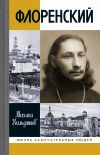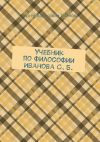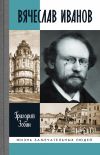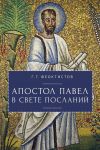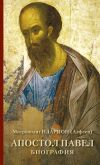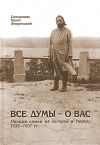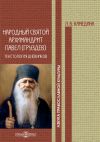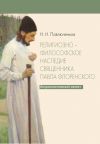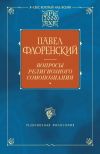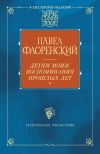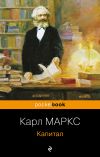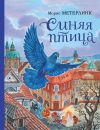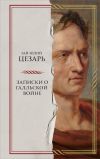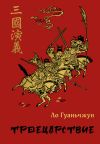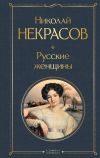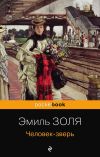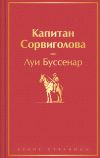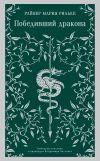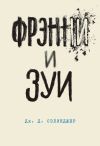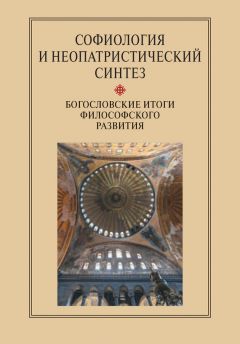
Автор книги: Сборник статей
Жанр: Религия: прочее, Религия
Возрастные ограничения: +12
сообщить о неприемлемом содержимом
Текущая страница: 20 (всего у книги 20 страниц)
О. Николай Озолин: Я в самом начале выразил свое недоумение по поводу названия секции. Для меня это большой сюрприз. В. В. Зеньковский критиковал Булгакова, он был одним из тех, кто настаивал на том, чтобы Свято-Сергиевское подворье и наш институт и парижское богословие не отождествляли с софиологией. У нас софилогов после о. Сергия и Л. А. Зандера не существует.
Н. А. Ваганова: То есть у вас софиологов нет, а у нас народились?
О. Николай Озолин: В том числе, если я правильно понимаю, стараниями Аржаковского?
Н. А. Ваганова и А. И. Резниченко: Нет! Софиологи народились из-за нерешенности проблемы.
А. М. Малер: Есть Александр Филоненко из Харькова, который занимается возрождением софиологии, и очень корректно.
Н. А. Ваганова: Филоненко сказал, что он скорее за софиологию, чем за неопатристический синтез, но у него свой вариант. У него богословие коммуникации.
А. М. Малер: Естественно, что свой, но это человек, который прямо говорит, что он видит в софиологии позитивное начало, прежде всего связанное с тем, что она дает социальный выход.
Н. А. Ваганова: Между прочим, в этом я с ним согласна. Это социальный выход.
О. Николай Озолин: Мы противопоставляем софианство и неопатристический синтез. Но неопатристический синтез как единое течение – это тоже миф. У нас есть отдельное православное богословие – Лосский, Флоровский, Успенский. Но при этом есть переступившие грань между философией и богословием люди, как отец Сергий, которые удивляют нас своими личными качествами, но их мышление, следующее моделям запоздалого гегельянства, утомляет. Я понимаю, что он очень красочен и увлекателен, но не как мыслитель, во всяком случае с точки зрения церковной. Его можно читать как поэта, если хотите, как беллетриста, но не как богослова.
К. М. Антонов: Я попробую в одной реплике решить две проблемы. Во-первых, оправдать название перед отцом Николаем, а во-вторых, ответить на вопрос о смысле новых направлений и их отношении к старой школе. Название возникло в результате вот какого хода мысли. Действительно, в XIX в. существовала русская богословская школа в духовных академиях. Это была очень корпоративная, очень рабочая на самом деле богословская наука, давшая весьма значительные плоды, от которых, разумеется, было бы глупо отказываться. Однако начиная с 20–30-х гг. XIX в. в русском обществе стали появляться люди, которые, обращаясь из неверующего, или полуверующего, или агностического, или какого-то еще состояния к вере, искали какого-то способа осмыслить это свое обращение, искали какого-то способа понять свою веру и во что они верят. И в силу своего иного образования, и в силу того, что эта духовно-академическая наука не ставила перед собой задачи работать с такого рода людьми, они в этой духовно-академической науке ответа на свою экзистенциальную проблему не находили. Поэтому они начинали изъяснять свою веру на свой страх и риск, и таким образом сложилось то, что мы сейчас называем «русская религиозная философия». Это было именно философское осмысление религии и веры. Это Чаадаев, это славянофилы, позже Владимир Соловьев и так далее. Они, как правило, были очень критично настроены по отношению к этой духовно-академической науке, и именно в их среде возникла идея так называемого западного пленения православного богословия, которая, конечно, тоже является некоторой, мягко говоря, мифологемой, но которая в свое время сыграла важную роль в осмыслении истории русского богословия. И в этом своем философском развитии в какой-то момент эти люди оказались поставлены перед необходимостью богословствовать. Развитие их мысли привело их к постановке богословских проблем. Они вступили в то или иное взаимодействие с богословием, и результатом этого стала та ситуация, которую мы назвали «богословским итогом философского развития». Когда развитие философской мысли пришло к постановке богословских проблем и попыталось эти проблемы каким-то образом разрешить. В результате этого процесса возникли и софиологические концепции, скажем концепция отца Сергия Булгакова, которого мы можем считать плохим богословом, но он был именно богословом. Он сам себя в последнее время своего творчества понимал как богослова и читал курс догматики. Результатом того же самого, как мне кажется, движения, но, может быть, другого извода того же самого движения стало возникновение этой персоналистической концепции и концепции неопатристического синтеза. Вот что они, собственно, дают, по сравнению с тем, чего не давала очень хорошая духовно-академическая наука того времени. Они дают ответ на экзистенциальные проблемы современного образованного человека. И еще очень важная вещь, которую мне бы хотелось подчеркнуть, – я, например, не являюсь сторонником софиологии и не являюсь сторонником идей неопатристического синтеза, и не являюсь православным персоналистом. Православным являюсь, персоналистом – нет. Почему? Я профессионально являюсь историком философии. Для меня все эти три или два проекта или идеи являются продуктами некоторой истории мысли, которые ставят передо мной определенные проблемы. Эти проблемы имеют и чисто исторический, и философский, и экзистенциальный характер. Они в то же время мне помогают решить какие-то мои личные духовные проблемы, но я очень далек от того, чтобы заявлять себя сторонником какой-то из этих концепций, потому что если я это сделаю, я выпаду из исследовательской установки.[621]621
Данная реплика, как бы подводящая итог заседанию, в действительности оказалась заключительной по чисто техническим причинам: через пару минут микрофон был отключен. Последовавшие за этим размышления представителей Свято-Сергиевского Института – прот. Николая Чернокрака и прот. Николая Озолинат – о духовном значении личности о. Сергия Булгакова произвели глубокое впечатление на присутствующих.
[Закрыть]
Summary
The development of the scientific thought is inevitably connected with the reconsideration of the established notions and schemes, which became the matter of course. Theological scientific thought can’t be an exception of the rule as it strives for clearer understanding of the church faith and seeks appropriate ways of such understanding. From this point of view the authors of this collection become united in their wish to check final results of the development of Russian religious – philosophical and theological – thought of the XX century, though they still differ in many questions of the history of philosophical and theological thought. This development is in the highest degree connected with the two most significant theological projects: sophiology and neopatristic synthesis. Meanwhile there is a very essential fact, which is also noted in the name of this collection – they both have deep roots in Russian philosophical thought. The elements of both projects can already be noticed in the thought of the XVIII century: in G. S. Skovoroda’s works and in Russian Martinism of Catherine the Great time. Here arise the premises of their contrasting to the academic theology as to cold and over-rationalist. In the first half of the XIX century I. V. Kireevsky expressed the idea that it’s necessary to develop Christian philosophy on the grounds of patristic thinking; at the same time in the works of archpriest Golubinsky many researchers find the intuitions which are close to the sophiology. Here the rationalism of the academic tradition is interpreted by the Slavophils as its dependence from western models. Finally both tendencies find their expression in Vl. Soloviev’s works, who made Sophia (The Holy Wisdom of God) the central symbol of his philosophic, theological and poetic thinking, but at the same time not only set a task «to justify the faith of fathers» but even tried as archpriest G. Florovsky said «to lead the theological understanding to its origins: to experience and teaching of the Church».[622]622
Archpr. G. Florovskiy. The Ways of Russian Theology. Kiev, 1991. P. 386.
[Закрыть] Though Soloviev’s experience was a disputable issue, it became determinative for the next development of Russian thought including its schools, both which made a start from it and which opposed it. Considerably as a result of his influence in the beginning of the XX century not only abstract theoretical but vital desire for profound mastering of the basis of patristic thinking quite seamlessly got along with the idea of Sophia in the works of such thinkers as V. F. Ern and f. P. Florensky. In this idea of Sophia they saw from one hand the foundation for the union of theory and life; and from the other hand the clue to the solution of theological and philosophic problems either entrusted from the past or set by the present: questions about the relation between God and the world, faith and mind, religion and culture. Both conceptions, which seem practically incompatible to us, appear here naturally mixed. Soloviev is criticized not for Sophiology itself but for general «abstractness», preserved rationality of thinking, insufficiently firm connection with saint fathers. The gap and the contraposition of the two concepts appear later – in emigration, when mainly philosophic development of the thought, which was considered above, finishes with the attempts of theological synthesis. It is very important that the opposition Sophiology/Neopatristics appears exactly inside theology. The final convertion of archpriest S. Bulgakov from philosophic works to theological ones can be considered as the central moment. His attempt of pure theological sophiological synthesis draws a violent protest among young thinkers who followed him in his evolution from philosophy to theology but sought in the latter their own way and who made their banner a very typical for the first half of the XX century slogan «towards the fathers!». This confrontation which shaped into a famous «debate about Sophia» became the determinative event in the history of Russian theological thought of the XX century. Thereby a very actual for our time problem of relations between philosophy and theology is somehow built in in development of Russian thought of XIX–XX centuries and it is a field of their intensive cooperation which had important consequences for both sides.
Not touching upon the following historical vicissitudes let’s say that the result of the «debate about Sophia» became the conception which spread both among the researchers and educated public and according to which it is Neopatristics that is the only true and efficient modern expression of Orthodox tradition, whereas Sophiology on the contrary is heretical, theologically vain and philosophically baseless and only can be of historical interest as «ineffectual» synthesis which still has the only positive achievement – the beginning of an «effective» synthesis – Neopatristic. However as the every long-present belief, it needs to be checked and perhaps even to be reconsidered. In any case, it doesn’t seem us excessive to ask a question: aren’t there any unnoticed lost opportunities as well as evident benefits which are connected with the result of debate about Sophia? It appears that such a statement of the problem, which doesn’t claim neither to the reconsideration nor to the confirmation of the famous church decisions and can shape new ways in studying the history of native thought and is of historic-philosophic, theological and public interest. Particularly it can serve as a necessary basis for the next step: the discovery of historical limitation, built in the development of the conception of «Orthodox theology captured by the West» which was described above, and updating of the heritage of the academic and even wider – institutional Church thought of XVIII–XX centuries connected with it.
In the conclusion it is appropriate to give short characteristics to the each participant’s contribution. Let us remark that in this collection we publish the articles of the authors both those who made a report at the section and who couldn’t do this for some reason or other but still prepared the proper material and announced about their participation.
The first texts of this collection are dedicated t the works of V. S. Soloviev. T. A. Poletaeva examines the origins of his conception of mystical experience in relation with his own personal experience of mystical feelings, points to the absence of intersection with mystical theology of fathers of the Church. Such points of intersection, however, the author finds in the late works of the great thinker.
U. B. Tikheev restores the historic-philosophical context of Soloviev’s teaching about Sophia, paying special attention to J. Böhme’s influence, which was mediated by F. Baader’s perception of philosophy of German romanticism and «religious erotology».
Next group of texts concerns the development of those ideas in the philosophy of the beginning of XX century. O. V. Marchenko says in her article about working out the problems of sophiology and specifity of original Russian philosophy with its personalism and ontologism, and also about prospects of «neopatristic synthesis» in the works of V. F Ern. The author pays special attention to the influence of Ern’s ideas to the genesis of archpr. G. Florovskiy’s views.
Disclosure of complexity and omnitude of Sophia conception in Fr P. Florensky’s works let S. M. Polovinkin point to one-sidedness of appraisal attitude among opponents of the thinker and prove paradoxical consistency of antinomies of Sophia.
In I. A. Edoshina’ s article the subject of the study is both theological and generally cultural semantic field of Florensky’s article «Thought it not robbery» (Churchslavonic «Ne voskhitsheniem neptsheva» Philippians 2:6) his conception of mystical ascending/descent is set into the connection with Vyach. Ivanov’s according ideas.
Central figures of the rest part of the issue become the thinkers who represented the intellectual movements in Russian emigration: archpr. S. Bulgakov, archpr. G. Florovsky, Vl. Lossky.
N. A. Vaganova’s article is dedicated to interpretation and presence of Kant’s ideas in Russian philosophy and mainly in Bulgakov’s works. The author points to transcendent, not metaphysical sense of the idea of Sophia, which she suggests to consider in three aspects as philosophema, theologema and mythologema.
C. M. Antonov, in his article, makes a comparison of Bulgakov’s philosophy of religion with the absence of it in the works of the representatives of neopatristic synthesis. The author shows the dependence of V. N. Lossky’s ideas on philosophic context of the Silver Age, particularly on Bulgakov’s philosophic-theological ideas.
The publication of Fr G. Florovsky’s letters to Fr S. Bulgakov, being accompanied with the introductory article and annotation by A. I. Reznichenko, is a very valuable contribution. The author suggests a conceptual interpretation of this correspondence, according to which Florovsky’s theology depends on Bulgakov’s onthological model – as the model he originates to built his own one.
V. N. Belov examines a problem of possibility of Christian philosophy in the works of different representatives of Christian thought of XX century: catholic (Thomas Aquinas, Neo-Thomism of E. Gilson, J. Maritain), protestant (M. Luther, K. Barth, P. Tillich, R. Niebuhr) and orthodox (St. G. Palamas, A. F. Losev, archpr. G. Florovsky, S. S. Horuzhiy).
O. T. Ermishin considers the evolution of archpr. G. Florovsky’s attitude to eurasinism and the role of this evolution in the formation of theological ideas of the thinker not only on the material of famous articles but using the array of archive information from the correspondence of the thinker with P. P. Suvchinsky.
Y. van Rossum analyses different types of relations between philosophy and theology in Orthodox thought by the example of the St. G. Palamas’solving the problem of relations between God and the world in the context of Byzantine discussions about uncreaturehood of divine energies and in archpr. S. Bulgakov’s works.
Arthur Mrovchinskiy-Van Allen and Sebastian Montel Gomes on the contrary put the thoughts of Bulgakov and Florovsky into the modern context of discussions about post-secular society, where they become actual as the Christian answer to post-secular thinking (like A. Badiou’s one), and it lets us reveal crypto-theological foundations which are typical to this thinking and which can’t be subtracted.
A. M. Maler analyses fundamental conceptions of personality, which were suggested both by the representatives of sophiology and conception of unanimity (Vl. Soloviev, archpr. S. Bulgakov, Fr P. Florensky, L. P. Karsavin) and by the authors of neopatristic synthesis (Vl. Lossky, archpr. G. Florovsky).
In the conclusive article P. B. Mikhailov takes an attempt to compare Bulgakov, Florovsky and Vl. Lossky’s theology in the context of their personal theological method (archpr. S. Bulgakov’s intuitionism, V. N. Lossky’s apophatisism, archpr. G. Florovsky’s Christian Hellenism). The discovered peculiarities of theological methodology, as the author thinks, explain the features of their theological style and also throw light on the modern perception of their ideas.
At the end of this collection we also set the most interesting materials of the discussions which took place after the first and the second sessions. There we consider urgent problems connected with the modern perception of the ideas of Russian theologians, and first of all of archpr. S. Bulgakov. The representatieves of St. Sergius Orthodox Theological Institute, Fr. Nicolas Cernokrak and Fr. Nicolas Ozolin, took an active part in the conclusive discussion.
Сведения об авторах
Протоиерей Николай Чернокрак – профессор Нового Завета и аскетического богословия Свято-Сергиевского богословского института (Париж, Франция)
Протоиерей Николай Озолин – декан, профессор иконологии, пастырского богословия и гомилетики Свято-Сергиевского богословского института (Париж, Франция)
Татьяна Александровна Полетаева – канд. филос. наук, Белгородская Православная духовная семинария, Факультет дополнительного образования ПСТГУ
Юрий Борисович Тихеев – канд. филос. наук, доцент кафедры философии Факультета гуманитарных наук МФТИ
Олег Викторович Марченко – д-р филос. наук, профессор кафедры истории отечественной философии Философского факультета РГГУ и Московской государственной консерватории им. П. И. Чайковского, заведующий кафедрой гуманитарных наук МГК
Сергей Михайлович Половинкин – канд. филос. наук, доцент кафедры истории отечественной философии Философского факультета РГГУ
Ирина Анатольевна Едошина – д-р культурологии, профессор, заведующая кафедрой теории и истории культур Факультета иностранных языков Костромского государственного университета им. Н. А. Некрасова
Наталья Анатольевна Ваганова – канд. филос. наук, заместитель заведующего кафедрой философии Богословского факультета ПСТГУ
Константин Михайлович Антонов – д-р филос. наук, доцент, заведующий кафедрой философии религии и религиозных аспектов культуры Богословского факультета ПСТГУ
Анна Игоревна Резниченко – канд. филос. наук, доцент кафедры истории отечественной философии Философского факультета РГГУ
Владимир Николаевич Белов – д-р филос. наук, профессор кафедры философии культуры и культурологии Философского факультета Саратовского государственного университета им. Н. Г. Чернышевского
Олег Тимофеевич Ермишин – д-р филос. наук, ведущий научный сотрудник Дома русского зарубежья им. А. И. Солженицына
Йост ван Россум – профессор церковной истории Свято-Сергиевского богословского института (Париж, Франция)
Артур Мровчинский-ван Аллен (Artur Mrowczynski-Van Allen) – директор Славянского департамента Международного центра изучения восточного христианства (Гранада), преподаватель философии в Институте философии им. Эдит Штайн, Институте теологии «Lumen Gentium» семинарии Гранады, консультант епископальной комиссии межконфессиональных контактов епископальной конференции Испании (Мадрид)
Себастьян Монтьель Гомес (Sebastian Montiel Gomez) – профессор геометрии и топологии, декан Факультета математики (2007–2011) Университета Гранады
Аркадий Маркович Малер – научный сотрудник ИФ РАН, член Синодальной Библейско-Богословской комиссии
Петр Борисович Михайлов – канд. филос. наук, зав. кафедрой систематического богословия и патрологии Богословского факультета ПСТГУ, научный сотрудник сектора философии религии ИФ РАН
Правообладателям!
Это произведение, предположительно, находится в статусе 'public domain'. Если это не так и размещение материала нарушает чьи-либо права, то сообщите нам об этом.
